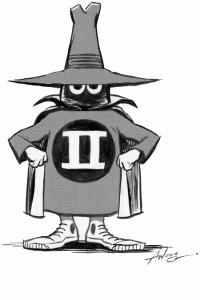Search the Community
Showing results for tags 'standards'.
-
The Government is raising emission standards for new petrol vehicles and petrol quality to ensure cleaner air for all, and increasing the frequency of updates on Singapore's air quality. The announcement was made by Minister for the Environment and Water Resources Vivian Balakrishnan at the Singapore Environmental Achievement Awards 2012 today. The measures are part of the National Environment Agency's (NEA) roadmap to reduce sulphur dioxide and particulate matter levels in the air in order to meet the World Health Organization's Air Quality Guidelines. From tomorrow, the NEA will be updating the Pollutant Standards Index (PSI) thrice daily instead of once a day, to make air quality information more relevant to Singaporeans. In addition, PM 2.5 levels - a pollutant emitted from the petrochemical industry and diesel vehicles - will also be made available with the PSI readings. Source: http://www.todayonline.com/Hotnews/EDC1208...es-to-be-raised
-
As part of Singapore's overall plan to achieve higher air quality standards, a tighter emission standard for in-use diesel vehicles will be implemented from Jan 1, 2014, as annouced at this year's Budget Deabate. All such vehicles will need to achieve a smoke opacity test result of 40 Hartridge Smoke Units (HSU) or lower during their mandatory vehicle inspections for road tax renewal. HSU is a measurement of the opacity of smoke that is emitted. The National Environment Agency (NEA) has been working closely with the authorised vehicle inspection centres (VICOM, JIC Inspection Services and STA Inspection) to alert owners whose vehicles show borderline results during their mandatory inspection, so that they may take the necessary actions to service their vehicles before Jan 1, 2014. The adoption of the revised smoke opacity limit will minimise smoke emissions from diesel vehicles plying Singapore's roads. A six-month grace period will be introduced for vehicles that have borderline test results, to give time for vehicle-owners to adjust to the higher standards. From Jan 1 to Jun 30, 2014, owners of diesel vehicles with smoke opacity test results between 41 and 50 HSU will be issued warning letters. Vehicles with smoke opacity test results exceeding 50 HSU will still be fined, in accordance with the current regulations. From Jul 1, 2014 onwards, owners of vehicles with smoke opacity test results above 40 HSU will be fined up to $5,000. Motorists should get their vehicles properly serviced or repaired if they fail the smoke opacity test. From Jan till Sep this year, there have been 5,809 enforcement cases against smoky diesel vehicles; 2012 saw 6,381, showing an increase every year. As such, NEA said it is committed to ensuring clean and safe air in Singapore. Stringent enforcement action against smoke emissions from motor vehicles, in tandem with the tightening of emission standards for diesel vehicles over time, is part of Singapore's overall plan to reduce domestic emissions of particulate matter and achieve higher air quality standards. Motorists can help to ensure cleaner air for all by practising good driving habits, servicing their vehicles regularly, and avoiding overloading their vehicles. http://ride.asiaone.com/news/general/story/tighter-emission-standards-use-diesel-vehicles#sthash.caczgvcG.dpuf
-
What happened to angmoh standard of Human Rights? Britain's MI6 aided torture of Nepal Maoists, book claims British authorities funded a four-year-long intelligence operation in Nepal that led to Maoist rebels being arrested, tortured and killed during the country's civil war, according to the author of a new book on Kathmandu. Launched in 2002, "Operation Mustang" targeted Maoist guerillas and saw British intelligence agency MI6 fund safe houses and provide training in surveillance and counter-insurgency tactics to Nepal's army and spy agency, the National Investigation Department (NID), writer Thomas Bell told AFP Saturday. Nepal's decade-long civil war left more than 16,000 dead, with rebels and security forces accused of serious human rights violations including killings, rapes, torture and disappearances. "According to senior Nepalese intelligence and army officials involved in the operation, British aid greatly strengthened their performance and led to about 100 arrests," said Bell, whose book "Kathmandu" hits stores in South Asia on Thursday. "It's difficult to put an exact number on it, but certainly some of those who were arrested were tortured and disappeared," he said. Maoist commander Sadhuram Devkota, known by his nom-de-guerre "Prashant", was among those captured during "Operation Mustang" in November 2004. Six weeks later, he was found hanging from a low window in his cell, with officials saying he had committed suicide. Despite protests, no independent investigation was ever carried out. British authorities helped construct a bug-proof building in the NID headquarters, created a secure radio network for communications and supplied everything from cameras to computers to mobile phones and night vision binoculars, according to Bell's sources in the Nepalese security establishment. "The agency also sent a small number of British officers to Nepal, around four or five -- some tied to the embassy, others operating separately," Bell said. The officers gave the Nepalese training in how to place bugs, how to penetrate rebel networks and how to groom informers. - 'They knew what was happening' - Bell spent about a year interviewing some 20 highly-placed sources to corroborate the details of the operation, and said a senior western official told him the operation was cleared by Britain's Foreign Office. A Foreign Office spokeswoman told AFP: "We do not comment on intelligence matters but, as we have repeatedly made clear, the UK does not participate in, solicit, encourage or condone the use of torture or cruel, inhuman and degrading treatment or punishment. "In no circumstances will UK personnel ever be authorised to take such action; we neither condone such activity, nor do we ask others to do it on our behalf. "We would never authorise any action in the knowledge or belief that torture would take place at the hands of a third party." A Nepalese general with close knowledge of the operation told the writer there was no doubt that British authorities realised that some of the arrested suspects would be tortured and killed. "Being British they must have thought about human rights also, but they knew exactly what was happening to them," the general said. "The thing must have been approved at a high level." Bell said it was "a peculiar contradiction that while calling for an end to abuses... the British were secretly giving very significant help in arresting targets whom they knew were very likely to be tortured". The British-born writer covered Nepal's civil war from 2002 to 2007, reporting for The Economist and the South China Morning Post before moving to Bangkok for a two-year stint as The Daily Telegraph's Southeast Asia correspondent. Tejshree Thapa, senior researcher at the Asia division of Human Rights Watch, said: "Nepal's army was known by 2002 to be an abusive force, responsible for... summary executions, torture, custodial detentions". "To support such an army is tantamount to entrenching and encouraging abuse and impunity," Thapa told AFP. Nepal army spokesman Jagdish Chandra Pokharel denied all knowledge of the operation, which apparently continued even after a coup in February 2005 by the then-king Gyanendra seizing direct control prompted the British to publicly suspend all military aid to the country. "I have no idea about MI6 training the Nepal army or any Operation Mustang," Pokharel told AFP. Nepal is in the process of drafting a new constitution, a key step in a stalled peace process begun after the end of the civil war in 2006. http://news.yahoo.com/britains-mi6-aided-torture-nepal-maoists-book-claims-025143311.html
- 1 reply
-
- 1
-

-
- britain
- human rights
-
(and 7 more)
Tagged with:
-
Food for thought... From ST Forum: http://www.straitstimes.com/STForum/Online...ory_812042.html Cleanliness standards down, says visitor Published on Jun 18, 2012 COMPARED to our first visit to Singapore in 2005, my wife and I find that the country's cleanliness standards have declined now. In 2005, I had seen only an occasional cigarette butt, an empty beer or juice can or a plastic bag on the pavement or in the park. This year, to my great consternation, I see parks and pavements littered with them, making me wonder if the city-state has taken a holiday from its cleanliness drive. The other night, I took a long and leisurely walk along Orchard Road. What greeted me on the pavements was not something I had bargained for. There were cigarette butts all over the pavements. So were empty beer and soft drink cans, and plastic bags with remains of food inside and outside them. There was no dearth of waste bins on the pavements. This shows that those who are in charge of keeping the city clean have been doing their job by making available enough bins all along the pavements. There were also signs imploring people to 'bin' the waste. However, the public - residents and visitors alike - look woefully uncooperative. Also, many public toilets are dirty and not up to the standards of hygiene Singapore once boasted. So one gains the disturbing impression that the city-state has relaxed its rules and regulations governing its hygiene standards. A city that was once thought to be the epitome of hygiene is now regrettably complacent. If the garden city wants to get back its lost reputation as a clean city, it has to strictly deal with the erring public and lethargic contractors and cleaners. This is what I feel as a visitor. C.V. Sukumaran
- 18 replies
-
- Forum
- Cleanliness
- (and 4 more)
-
Discussion / Debate... Have service standards at petrol stations declined? 1. Windshields are not cleaned. Attendants pretend not to ask, only clean when asked upon. 2. More interested in selling their OFFERS at the cashiers. 3. Never ask if fluids need to be filled up. 4. Tyre Air Pump broken down for days at same station 5. Etc, Etc.... All these despite their fat profits!!! But there are still service oriented stations, just very few...
-
Simple peasant like myself only have one question. Why is there an inverse correlation between flat size and flat price? Smaller flats doesn't mean lower quality of living: HDB CEO Posted: 10 November 2011 1355 hrs SINGAPORE: Public flats in Singapore may be getting smaller but this has not lowered quality of living, says Housing and Development Board's (HDB) CEO Cheong Koon Hean. Speaking to reporters on the sidelines of a housing forum on Thursday morning, Dr Cheong noted that there were now fewer persons living in one flat which works out to increased living space per person. "Our families are smaller. In the old days, we have very large families living in a flat. Today, the family is two, three, four (people)." The size of HDB flats has shrunk by five to 10 per cent over the last 20 to 30 years. For example, a five-room flat in Bukit Batok Central built in 1989 has a floor area of 121 square metres, compared to 110 square metres for a similar unit built in 2003. Based on official surveys, the average household size was 3.5 in 2010, and 4.9 in 1980. This means an occupant in a 110 square metre five-room flat today will have 31 sq metres of space, while a resident in a 121 sq metres five-room flat in the 80s had only about 25 sq metres of space. Dr Cheong added that interior design also plays a part in creating good living space. "In many global cities of the world or big cities, people do pay attention to how they do the inside of the flat as well as optimising the use of furniture and storage. It can be a very comfortable living environment."
-
What more need to say about smokescreen and p8p bullsheet. Even the bank they invested with the people's money at the highest price during the financial crisis are screw them.
-
Scrutiny of manifestos
-
- Scrutiny
- manifestos
-
(and 2 more)
Tagged with:
-
S.Korean tyre maker probed over quality standards HONG KONG: South Korea's Kumho Tire, the biggest tyre supplier to carmakers in China , is conducting an internal investigation following a report that its tyres failed to meet quality standards. According to a Chinese state television report, Kumho used more material from unfinished tyres than allowed, to save on costs. The report has sparked anxiety among some large automakers because Kumho counts the likes of General Motor and Peugeot Citroen as clients. According to the report, the tyre maker used excessive amounts of recycled tyres as raw materials in its manufacturing facility in Tianjin. That could cause the tyres to rupture. China's Ministry of Industry and Information Technology is said to be conducting its own probe into the matter. A Kumho spokesperson has come out to say that the company would cooperate with investigators . The spokesperson defended the company's practice of using a percentage of recycled rubber on new tyres, insisting that there are no safety issues. Kumho currently has four tyre plants on the mainland. As the world's biggest auto market today, China is also Kumho's biggest growth market, accounting for some 30 per cent of global sales. Some automakers have already started to distance themselves from the tyre maker. Volkwagen Shanghai said none of its cars uses Kumho tyres while Hyundai Motor's Beijing venture is also investigating the claims. General Motors Shanghai said it would handle consumer complaints and inquiries into the matter. Shares in Kumho on Thursday fell nearly eight per cent in Seoul on the news. -CNA/wk http://www.channelnewsasia.com/stories/cor...1117147/1/.html
-
This post is to share my experience of booking with Jetstar. As you guys know, the situation is Bangkok is still unpredictable. My flight was booked for the 7th of June. I had been calling several times to ask if I can either postpone my flight to end of the year or get a full refund. The customer service was very rude and spoke with a weird accent. FT maybe? anyway, their stand was, the situation is dying down and DESPITE warnings from the government not to go BKK unless necessary, the customer serive told me that maybe I can get travel insurance. What the %$^&* is she trying to say? Buy insurance then go there to die? Also, she said, we can try calling back 2 days prior to the flight date. What the %^&^* is she trying to say? Confirm my travel plans just 2 days before? This is totally ridiculous and I strongly advise brothers to consider before booking any flights on Jetstar. Joanne Peh bluff one. Also, the customer service told me that she is the highest line of contact I can speak to. This is totally ridiculous.
- 54 replies
-
- Fanstastic
- service
-
(and 2 more)
Tagged with:
-
Impressive... I am no fan of this car though... So to all who want to diss the car as another Korean relabel, pls think again. Btw the new Astra also got similar 5-Star NCAP results (sama platform).
-
how many here ever kena horn by taxi drivers or kena flash high beam by taxi drivers jus bcoz dey no patience or jus wana bully? but wen v horn or flash dem, wow dey not happy hahahahha y i never encounter any taxi driver who will put the hand up and say sorry wen dey make a mistake? i do it n hv seen other drivers do it..... u tink taxi drivers tend 2 b road bullies coz insurance companies would rather take 50/50 blame n jus pay out 4 accidents eventhou u r not at fault????
-
Parliament to debate over EPL rights, standards of local pageants By Li Jiamei, Channel NewsAsia | Posted: 16 October 2009 1627 hrs SINGAPORE : Questions over the rights to air the English Premier League (EPL) as well as other sports channels will be raised when Parliament sits on Monday. At least three MPs will ask the Acting Information, Communications and the Arts Minister about the recent successful bid by SingTel over the EPL rights. MP for Bishan-Toa Payoh GRC Zainudin Nordin, for instance, wants to know if consumers will benefit from the competition between the operators. Other questions tabled include concerns over the prices of HDB flats, the revenue generated from the Formula 1 night race, as well as the recent controversy over the Ms Singapore World pageant. MP for Tanjong Pagar GRC Baey Yam Keng has asked the Trade and Industry Minister if there is a need for greater supervision by local organisers to ensure that Singapore's brand name will be protected. Parliament is also expected to introduce the Singapore Armed Forces Amendment Bill and the Medical Registration Amendment Bill. The changes to the Medical Registration Act seek to improve and streamline the Singapore Medical Council's existing disciplinary processes. Parliament will sit at 1.30pm on Monday. - CNA /ls --- I am sure there are other more important things to debate???? Football is a national issue????
- 25 replies
-
- Parliament
- debate
- (and 4 more)
-
July 9, 2008 S'pore should free courts from govt influence: lawyers group SINGAPORE should free its courts from any government influence and elevate human rights standards to international levels, the world's largest legal association said. The International Bar Association's (IBA) human rights arm expressed concern over the limitations of freedom of expression and the independence of Singapore courts in a 72-page report released late in London on Tuesday. 'In particular, democratic debate and media comment are extremely restricted and government officials have initiated numerous successful defamation suits against both political and media critics,' said the association's executive director Mr Mark Ellis. The global legal association noted that while the city-state had a good reputation when adjudicating commercial cases that did not involve members of the ruling People's Action Party (PAP), when it came to matters regarding PAP litigants 'there are concerns about an actual or apparent lack of impartiality'. The London-based body of more than 30,000 member lawyers globally also said that while Singapore fared well in commercial and economic rankings, it fared poorly in press freedom rankings, which it said was a concern given that a free press can generate important dialogue on issues. 'Singapore cannot continue to claim that civil and political rights must take a back seat to economic rights, as its economic development is now of the highest order,' the report said. 'The International Bar Association Human Rights Institute strongly encourages Singapore to engage with the international community in a more constructive manner, and to take steps to implement international standards of human rights,' it said. The Singapore government did not immediately comment. Defamation suits Singapore, where the IBA held its annual conference last year, is among the most developed nations in Asia, with the second highest GDP per capita after Japan. However, media and human rights groups such as Amnesty International have criticised the government for restricting freedom of expression and using defamation lawsuits to financially cripple political opponents. In a list of 18 recommendations, the IBA urged the Singapore government to ratify the United Nations International Covenant on Civil and Political Rights, ease restrictions on the media and ensure that its courts are free from government influence. IBA executive director said in a statement Singapore should be a leader in human-rights, and its advancement would be complementary to the city-state's future prosperity. The IBA also noted that some publications, including The Economist and the Financial Times, have paid out-of-court settlements to avoid defamation lawsuits. The government says these lawsuits are needed to protect its reputation. The legal body suggested the government set limits on defamation payouts in cases initiated by government officials. At the convention last October, Singapore's Minister Mentor Lee Kuan Yew said the city-state's citizens were free to read whatever they wanted. He said Singapore was built on the rule of law and did not tolerate corruption, in contrast to the surrounding region, where 'money politics' was a way of life. That meant defamation action may be taken against those who impute dishonesty among government officials, in order to clear any doubts, he said. -- REUTERS, AFP. http://www.straitstimes.com/Latest%2BNews/...ory_256122.html the IBA will face another defamation suit from MIW... [/color] Let's see if there is any freedom of expression here.... be civil though










